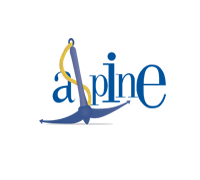

Newsletter - Publication 102
1st May 2021
|
|

Six petroleum exploration blocks awarded to state-run firms
The government had awarded six petroleum exploration blocks in Sindh, Balochistan and Punjab to state-run oil and gas exploration and development companies. The exploration licences (ELs) and petroleum concession agreements (PCAs) were signed by Petroleum Secretary and Director General of Petroleum Concessions on behalf of the government and Managing Director of Oil and Gas Development Company Limited (OGDCL), Managing Director of Mari Petroleum Company Limited (MPCL) and Managing Director of Pakistan Petroleum Limited at a ceremony witnessed by newly appointed Minister for Energy Mohammad. The director general of Petroleum Concession, Petroleum Division, signed PCAs and ELs over Block No. 3068-6 (Killa Saifullah) and Block No. 3067-7 (Sharan) in Balochistan with OGDCL and MPCL; Block No. 3069-9 (Suleiman-Balochistan) with OGDCL and PPL; and Block No. 2467-17 (Sujawal South) in Sindh, Block No. 3273-5 (Jhelum) and Block No. 3272-16 (Lilla) with OGDCL. The Petroleum Concession director general reported that minimum firm work commitment for these blocks was $24.68 million for a period of three years. The companies are obligated to spend a minimum of $30,000 per year in each block on social welfare schemes. Annual social welfare obligation in respect of these six blocks is $180,000. The energy minister expressed the hope that licences would benefit the country in the form of additional hydrocarbon reserves over the next few years. He said the execution of ELs and PCAs would not only enhance investment in the petroleum sector but also contribute to bridging the gap between demand and supply of energy in the country.
|
|
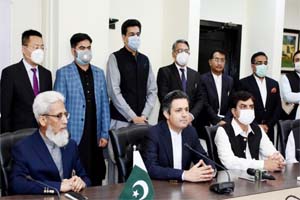
Financing for largest RLNG power plant arranged
The government on Apr 23 announced the financial closing of a 1,263-megawatt power project of the Punjab government to be located near Trimmu Barrage, Jhang. This is so far the largest RLNG-based power generation project in Pakistan and is being developed under Power Generation Policy 2015. The project is being developed as an independent private producer (IPP) mode through Punjab Thermal Power Ltd (PTPL), a private limited company owned by the Government of Punjab through Energy Department. This is the fourth mega project in Punjab to be based on imported regasified-liquified natural gas (RLNG) and second project of Government of Punjab through its own resources, the first being the Bhikki Power Plant, which has already entered full-fledged combined cycle commercial operations and has generated over 9.3 billion units during last year. PTPL project is being financed through 75pc commercial debt arranged from local banks which include National Bank of Pakistan, Bank of Punjab, United Bank and Habib Bank while the total cost involved in development of this project is $708 million. Utilising state-of-the-art technology, the plant has the design efficiency of 61.16pc which is rated amongst highest efficiencies in the world. The Power Division said the project would result in fuel-saving of billions of rupees to the national exchequer during 30 years project life period while reducing overall tariff.
|
|

Khewra salt set to be registered with international trade bodies
Pakistan is close to taking the lead in the global salt trade, as local rock salt of Khwera is set to be registered with international trade bodies. This will prevent traders to market Pakistani rock salt as Himalayan Pink Salt. The federal cabinet recently approved that Pakistan Minerals Development Corporation (PMDC) will be the registrant agency for rock salt produced in the country. The PMDC has finalised requirements for registration of rock salt with the Geographical Indications (GI) registry, under the management and control of Intellectual Property Organisation of Pakistan (IPO-Pakistan). After registration with IPO-Pakistan, the country will file for registration at foreign markets. PMDC Managing Director said Pakistan has branded the Khewra salt as “Pink Rock Salt” and its specifications were being finalised. “Currently, rock salt was neither a lucrative commodity for exports nor was Pakistan selling the rock salt as a commercial and industrial product,” he said, adding: “Soon after the GI tagging at international markets, Pakistan will be in a position to sign long term sale contracts with buyers abroad.” Since, there is no sale policy regarding rock salt, most of the rock salt was exported in rock form to the Middle East for exports. A Karachi-based salt trader said there is a very high global demand for rock salt, not only as table salt but even as a healing agent by massage centers of Korea and Thailand to other industrial usages.
|
|
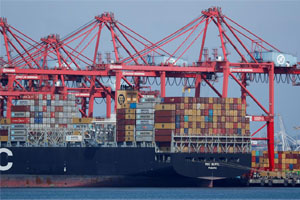
New system for cargo clearance launched
The Federal Board of Revenue’s Pakistan Customs Wing has introduced a new automated process in the Web-Based One Customs (WeBOC) system for scanning of containerised import consignments of industrial raw materials for speedy clearance at ports. The non-intrusive inspection system has been implemented initially at Karachi International Container Terminal, South Asia Pakistan Terminals of Karachi port and at Qasim International Container Terminal, Port Qasim with effect from April 19, 2021 for industrial raw materials. The Karachi Port and Port Qasim have Customs scanning facilities installed with the assistance of Japanese government under the JICA programme in addition to the scanners of the terminal operators. The introduction of the non-intrusive inspection system by Customs was a long-awaited initiative aimed at replacing physical inspection of cargo and reducing the dwell time at ports by using the latest scanning technology in line with international best practices. The scheme aims to reduce the physical examination of goods which is time-consuming and costlier besides causing port congestion. The blue channel will be part of the Risk Management System (RMS) through which Customs will be able to select the consignments of containerised cargo based on the RMS by using computer programme targeting the suspected shipments.
|
|
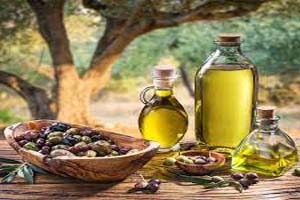
Olive cultivation to make Pakistan self-sufficient in edible oil
Blessed with diverse ecological zones, fertile soil and suitable climate conditions, Khyber Pakhtunkhwa is going to emerge as a home of olive trees where over 70 million wild olive plants have been discovered out of which 40 million would be planted jointly by the Agriculture and Forest departments in next five years. From Chital to D I Khan and Suleiman Mountains near Waziristan to West Bank of the River Indus, KP is declared the most suitable landscape for olive cultivation where about 700,000 hectares land was fit for whopping olive cultivation on commercial scale. In order to bring this vast land under olive cover, the Forest and Agriculture departments have joined hands to plant 40 million olives mostly of Italian and Spanish varieties under 10 Billion Trees Afforestration Project (10BTAP) by 2026. Olive, bees-flora and fruits plants were included for the first time in the mega project in KP where 40 million olive trees would be planted and grafting in another 40 million wild olives would be achieved having preference to Spanish and Italian varieties due to its high production and climate resistance. 362 million plants including 180 million through forests enclosures including olive trees were planted by March 15 last in the province and efforts is on to achieve half of the target of 500 million saplings by June this year.
|
|

Regulators tighten noose on money laundering
The State Bank of Pakistan (SBP) and the Securities and Exchange Commission of Pakistan (SECP) on Apr 22 signed a Letter of Understanding (LoU) to tighten their joint supervisory role against money laundering and terror financing. The SBP and SECP have amended the Terms of Reference (ToR) of their Joint Task Force (JTF) on financial conglomerates to further strengthen the supervisory cooperation, inter alia, in Anti-Money Laundering, Combating the Financing of Terrorism and Countering Proliferation Financing (AML/CFT/CPF) supervision at financial-group level. The initiative has been taken after the country failed to come out from the grey list of the Paris-based Financial Action Task Force (FATF) which has tightened its grip over Pakistan. Financial circles in Pakistan believe the watchdog discriminates against Pakistan while comparing the financial systems of other regional countries. On Feb 25, 2021, FATF announced the move to keep Pakistan on its ‘grey list’, with the country’s status set to be reviewed next at an extraordinary plenary session in June 2021. The watchdog observed that Pakistan remained under increased monitoring. While Islamabad had made “significant progress”, there remained some “serious deficiencies” in mechanisms to plug terrorism financing, an announcement by the watchdog said. It further said that three out of the 27 points need to be fully addressed by Pakistan. Pakistan has another chance to come out from the grey list in June 2021 which is why the two regulators – SBP and SECP – decided to strengthen their role against AML and CFT.
|
|
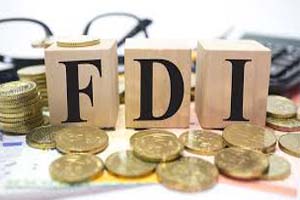
FDI drops 40% to $168m in March 2021
Foreign investment in different sectors of Pakistan’s economy like power, telecoms, financial business and oil and gas production dropped 40% to $167.6 million in March 2021. Foreign direct investment (FDI) had stood at $278.7 million in the same period of previous fiscal year, the State Bank of Pakistan (SBP) reported. China made the largest net investment of $126 million, mostly in the power sector, in March 2021. Cumulatively, in the first nine months (Jul-Mar) of current fiscal year 2020-21, the FDI inflows dropped 35% to $1.39 billion compared to $2.15 billion in the same period of last year. Overseas Investors Chamber of Commerce and Industry (OICCI) Secretary General said that the cumulative investment numbers for FY21 were not bad considering the fact that the world, including Pakistan, was passing through shocking times of the Covid-19 pandemic. The pandemic had put on hold new investment decisions throughout the world, which also caused a drop in fresh foreign investment in Pakistan as well. Secondly, there was a change in the government’s strategy as it was now attracting foreign investment in export sectors of the country instead of continuing to invite investment in import-based consumption sectors. The change in the strategy is aimed at supporting Pakistan’s faltering economy. A significant imbalance between the country’s higher import payments and lower export earnings has caused a massive surge in its foreign debt over the years, which has significantly impacted the country’s foreign currency reserves and weakened its capacity to make international payments.
|
|
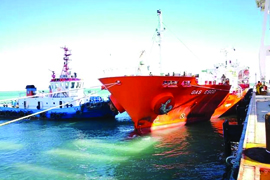
Stakeholders urge Ogra to grant construction licences for LNG terminals
Participants at a public hearing overwhelmingly supported the cases of two separate firms for grant of construction licences at the earliest to help reduce energy costs and gas shortage that currently stood at about three billion cubic feet per day (BCFD). The hearing presided over by Ogra Chairman was attended by Member Gas, Member Oil and a number of large consumer groups like cement producers, CNG station operators, power companies and textile industry. It took up two separate petitions for grant of licence for construction and establishment of LNG re-gasification terminals including all allied facilities at Port Qasim, Karachi. Petitioners Tabeer Energy Private Ltd (TEPL) and Energas Terminal Private Ltd (ETPL) applied under Ogra (LNG) Rules 2007 for grant of licence. The petitioners have required construction licences for Ogra before taking final investment decisions (FIDs) on setting up of LNG terminals at designated sites as all other regulatory processes have already been completed. The licence would allow the developers to set up terminals, purchase LNG supplies, re-gasify it through proposed LNG terminals and supply RLNG to the domestic market and use themselves in their sister companies. Both applicants said they had their own customers in the private sector and would arrange LNG imports without any liability to the government by utilising the pipeline network of gas utilities. Both parties declined to share the name of manufacturers of Floating Storage and Regasification Unit (FSRU) saying this could hamper their business plans. Tabeer representative said the company was targeting to make their terminal operational in 24 months after the FID is made based on the issuance of construction licence. “All the stakeholders unanimously asked the authority to expedite the process of grant of licencees to private investors”, said the Ogra in its concluding statement, adding it was imperative to meet the future energy demand of the country that private sector should be encouraged to import and supply LNG to various sector of economy.
|
|
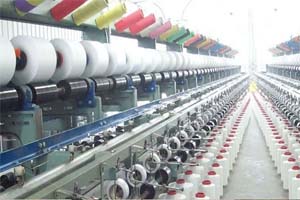
Export of textiles jumps 30pc in March
Pakistan’s exports of textile and clothing rebounded in March mainly due to value-added sectors and posted a growth of 30.4 per cent from a year ago, showed data released by the Pakistan Bureau of Statistics (PBS). The export value of these sectors edged up to $1.355 billion in March from $1.039bn over the corresponding month of last year. Growth in exports of value-added sectors contributed to an increase in overall exports from the sectors. In February, textile and clothing exports shrank 3.12pc on a year-on-year basis. The July-March figures showed that growth in textile and clothing exports came from the value-added sector. The value of exports reached $11.35bn in the July-March period this year as against $10.41bn over the corresponding months of last year, showing a growth of 9.06pc. To address the issue of shortage of cotton yarn for value-added sector, the ECC in its last meeting allowed duty-free import of cotton yarn until June 30, 2021. It will be difficult for the value-added sector to retain the orders in case government did not facilitate the timely availability of cotton yarn in the domestic market. Product-wise details reveal exports of ready-made garments up by 22.9pc in value, followed by knitwear 49.64pc, bedwear 43.71pc and towels 20.95pc during the month under review. Pakistan and China’s exports of apparel exports posted a substantial growth to United States compared to regional countries during the past few months. The government has already abolished duty and taxes on industrial raw materials as well as paying off past pending refunds to exporters. The devaluation of the rupee and lower interest rate accelerated industrial growth, especially in the export-oriented industries.
|
|
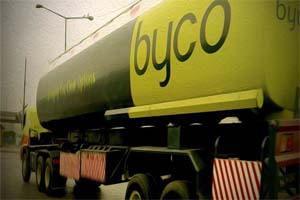
Byco to add two more import facilities
Byco Petroleum has started physical work on up-gradation plant of its refinery to convert furnace into Euro-5/6 petrol and diesel and plans to establish two more Single Point Mooring (SPMs) over the next couple of years. Byco Petroleum Pakistan Ltd (BPPL), which has now been rebranded as Cinergyco Pk Ltd after the replacement of Abraaj as fund manager of Infrastructure & Growth Capital Fund (IGCF), recently has held the groundbreaking of the “Upgrade-1” project recently. Pakistan’s fuel mix has evolved rapidly in the past four years. Till mid-2017, furnace oil or fuel oil was the main feedstock for power plants. This was switched to LNG in October 2017 by the then government ahead of application of IMO-2020 that banned high sulfur furnace oil as bunker fuel with effect from January last year. Suddenly hydro-skimming refineries had no market left for fuel oil and no avenues for export. A byproduct of making gasoline, diesel and other outputs of hydro-skimming, furnace oil was even exported by Byco in January 2020 to lessen financial losses incurred on it. The plant will clean the diesel and gasoline down to 10ppm of Sulphur to comply with Euro-5/6 standards.
|
|

Car sales record triple-digit growth in March
Automobile sales in Pakistan recorded a steep growth of 198% in March 2021 compared to the same period of last year primarily due to a lockdown in March 2020. In addition, the dispatches of vehicles having engine capacity of 1,000cc and below skyrocketed 437% on a year-on-year basis. According to data released by the Pakistan Automotive Manufacturers Association (PAMA) on Tuesday, car companies sold 20,801 units in March 2021 against 6,986 units dispatched in March 2020. The triple-digit growth in sales volume can be attributed to a low base effect amid a countrywide lockdown imposed by the government in March last year, which restricted economic activity. Moreover, rebound in the economy after the easing of lockdown and a drop in the policy rate aided the rise in car sales. On a month-on-month basis, auto sales surged 27% due to extra working days in March compared to February. Sales of cars of 1,000cc and below engine capacity soared on the back of a massive surge in demand for Suzuki Alto.
|
|
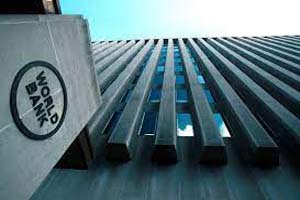
World Bank sets tough loan terms
The World Bank has set tough conditions for $ 1.5 billion lending such as increase in electricity rates, introduction of new power and tax policies, putting the government in a tight spot that is already seeking a review of the International Monetary Fund (IMF) deal. The finance ministry was seeking three budget support loans totaling $1.5 billion from the World Bank before the end of June. The loans are part of the overall $27 billion external financing requirement for the current fiscal year, said the finance ministry sources. The government has requested the World Bank to provide $500 million each under the Resilient Institutions for Sustainable Economy (RISE-II), Securing Human Investments to Foster Transformation (SHIFT-II) and Programme for Affordable and Clean Energy (PACE), said the sources. Some of the conditions that the World Bank has set are also part of the IMF programme, which the Fund revived three weeks ago, but the government now wants to renegotiate it.
|
|
|

© 2021 Alpine Marine Services Private Limited
all rights reserved
|
|